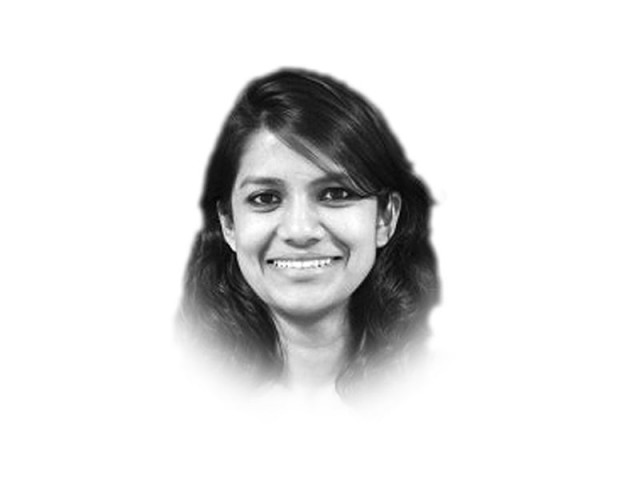Seeing each other in black and white
We talk about Pakistanis being stereotyped abroad while we, as a nation, are champions in the art.

The writer is a second year Master’s student at the Fletcher School of Law and Diplomacy, Tufts University, specialising in energy security and resource policy
This ‘Akbari’/’Asghari’ mentality has often crossed my mind during various discussions and debates I’ve had with fellow Pakistanis on politics, social issues, development, sports, etc. We all have our own views and usually aren’t willing to adjust or change them. We talk about Pakistanis being stereotyped by other countries while we have, as a nation, championed the art of stereotyping people within our own country. We are not willing to look at the several shades of grey that actually exist, preferring to describe things as black or white.
This mentality of operating on extremes can be found almost everywhere, resulting in our society becoming more and more polarised. We have the all-righteous religious people who follow religion to the T and categorise anyone who does not wear their shalwar above their ankles as being a non-believer. On the other hand, we have our ‘liberals’, who have discarded religion completely and believe it to be the root cause of all of our problems today.
Another example of our ‘Akbari’ and ‘Asghari’ mentality is how society sees General (retd) Pervez Musharraf. When he first came to power, he was considered to be one of the best things to have happened to the country. When he stood up and shook hands with Vajpayee at the Saarc conference, we whooped for him. His policies on liberating media, opening up Pakistan’s cellular networks, increasing broadband, etc. were widely praised. Fast-forward to 2013 and now he is regarded as one of the worst things that happened to Pakistan. Everything from terrorism to power outages to inflation is because of him. He is referred to as one of the worst rulers Pakistan has had.
Looking at other political organisations, we view Pakistani political parties through the same ‘Akbari’/’Asghari’ lens. On one side, Pakistan Tehreek-e-Insaf (PTI) supporters view anyone criticising their party as committing blasphemy whereas the PTI’s detractors view it as a naive, right-wing organisation, rather than both viewing it as a dynamic new political entrant with its flaws and limitations.
Likewise, the military is considered by most liberals as the institution responsible for many of the problems of our country. However, hardly anyone recognises the thousands of lives lost trying to defend Pakistan.
What we are forgetting in this battle of colouring everything black or white are the multiple shades of grey that form the middle ground, which is often where reality lies. We have forgotten that there are always multiple perspectives, that people have both good and bad qualities and that moderation is required to move ahead and progress. We talk about education and development and extremism but nothing will change unless we change our ‘Akbari’/’Asghari’ mentality. This problem runs across all classes, religions, races and education levels in the country. If even education does not teach us tolerance and moderation, then let us stop and think where we are going wrong.
Published in The Express Tribune, August 8th, 2013.
Like Opinion & Editorial on Facebook, follow @ETOpEd on Twitter to receive all updates on all our daily pieces.















COMMENTS
Comments are moderated and generally will be posted if they are on-topic and not abusive.
For more information, please see our Comments FAQ